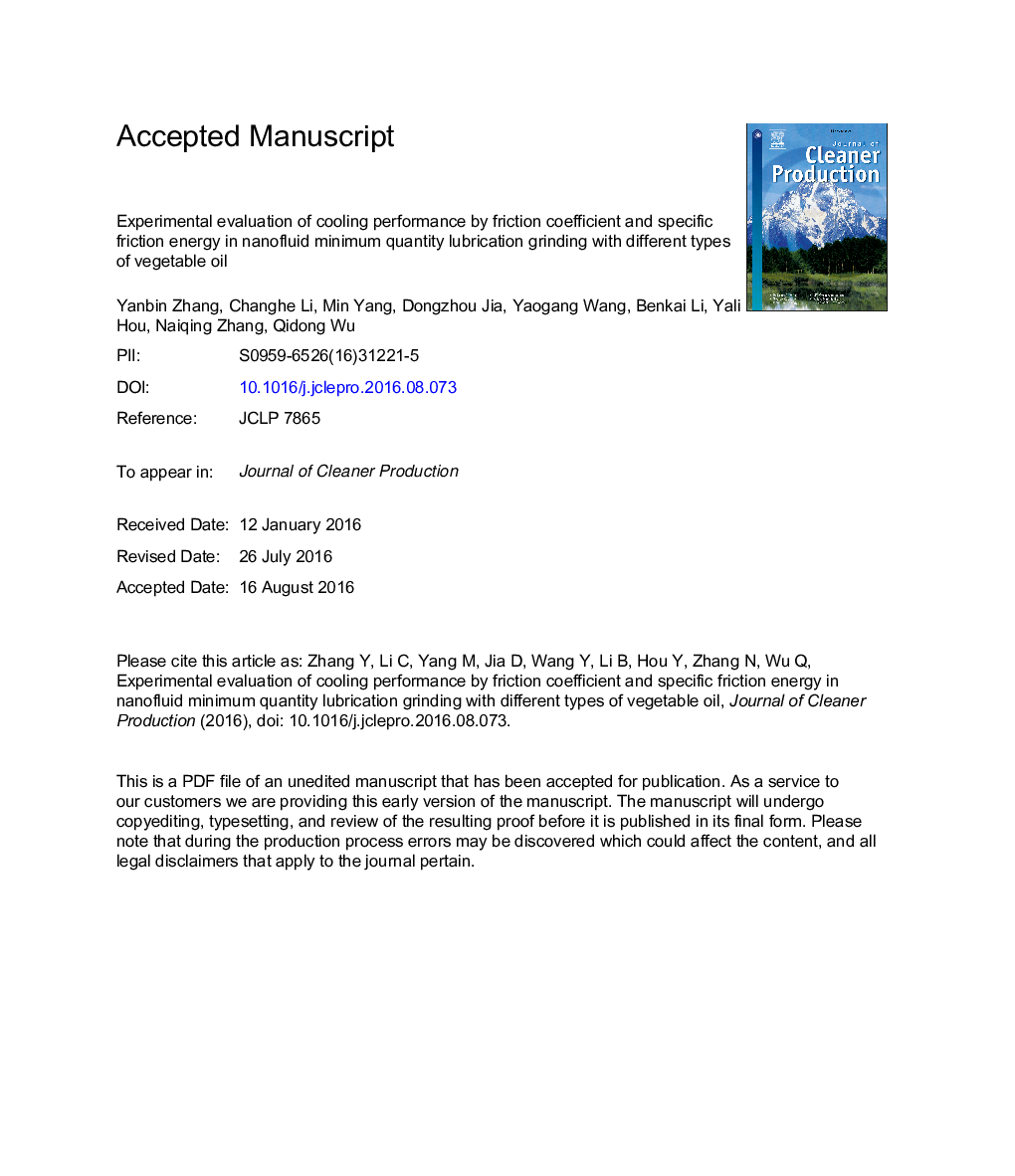| Article ID | Journal | Published Year | Pages | File Type |
|---|---|---|---|---|
| 8100653 | Journal of Cleaner Production | 2016 | 51 Pages |
Abstract
In accordance with the lubricating performance of nanofluid minimum quantity lubrication (N-MQL) grinding with different vegetable oils as the base oil in previous research, cooling performance was explored with a new method. Friction coefficient, specific friction energy, total heat flow density, and grinding peak temperature were used as evaluation parameters. The influence of the physical properties (viscosity, surface tension) of vegetable oils on the cooling effect was analyzed comprehensively. For the new method, a new ploughing force model and a friction force model were established, and cutting force and ploughing force were calculated theoretically. Afterward, friction force was obtained according to the theoretical model and experimental results and was used to calculate the evaluation parameters. The vegetable oil nanofluids showed better cooling performance than mineral oil because of their lubrication-favorable fatty acid molecules. Furthermore, the mechanism of the effect of nanofluid viscosity and surface tension on cooling performance was explored. Vegetable oil with a low viscosity and surface tension showed good cooling performance and that with a high viscosity and surface tension showed good lubrication performance. As a result, palm oil nanofluid with a high viscosity and surface tension achieved the lowest friction coefficient (0.258), specific friction energy (27.09 J/mm3), and grinding peak temperature (123.8 °C) and exhibited better grinding performance than the others.
Related Topics
Physical Sciences and Engineering
Energy
Renewable Energy, Sustainability and the Environment
Authors
Yanbin Zhang, Changhe Li, Min Yang, Dongzhou Jia, Yaogang Wang, Benkai Li, Yali Hou, Naiqing Zhang, Qidong Wu,
